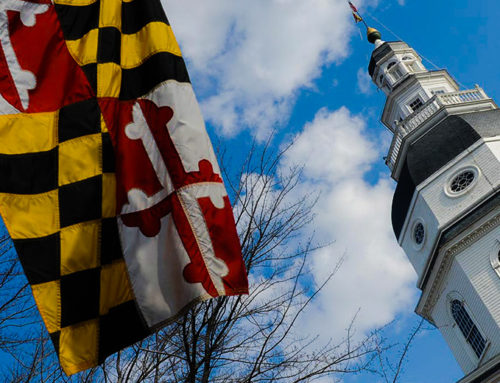View by Topic
Recent Articles
-
New Environmental Laws from the 2024 Maryland Legislative SessionSaturday, April 27th, 2024
-
EPA Designates PFOA and PFOS as Hazardous Substances under Superfund LawSaturday, April 20th, 2024
-
Federal Government Finalizes New Efficiency Standards for LightbulbsSaturday, April 13th, 2024
-
2024 IECC is Final After Addressing Preemption IssuesSaturday, April 6th, 2024
-
Settlement Portends Broad Failure in Attempts to Ban Natural GasSaturday, March 30th, 2024
View by Month/Year
“Green Building Law Update” Headlines
Recent Articles & News from
Stuart Kaplow’s blog
at GreenBuildingLawUpdate.com
- New Environmental Laws in Maryland: 2024 Brings Opportunities for Businesses April 28, 2024
- EPA Takes Action: PFOA and PFOS Now Hazardous Substances Under Superfund Law April 21, 2024
- Shedding Light on the Future: The Evolution of Lightbulbs in the Wake of New Energy Efficiency Standards April 14, 2024
- 2024 International Energy Conservation Code is Final After Addressing Preemption April 7, 2024
Subscribe to the Green Building Law Update!
Stuart Kaplow brings his expertise and extensive experience to the table with his unique digital publication, "Green Building Law Update". Subscribers receive regular updates to keep them informed about important issues surrounding Environmental Law, Green Building & Real Estate Law, as well as the emerging demand for Environmental Social Governance (ESG).
Get fresh content through the lense of Stuart Kaplow's cutting-edge expertise, innovative commentary and insider perspective. Don't miss another issue! Subscribe below.
A Quick Primer On Maryland Campaign Contributions
A person can contribute no more than $4,000 to one Maryland campaign and a total of $10,000 to all Maryland campaigns during a four-year cycle. The current 2002 four-year cycle runs from January 1, 1999 through December 31, 2002.
A contribution is money or anything of value that is given to a state campaign. An in-kind contribution includes anything of value (except money). Linda H. Lamone, the administrator of the Maryland State Board of Elections uses the example that a person may contribute bumper stickers to a candidate’s committee. The amount of the contribution equals the fair market value of the bumper stickers. Services provided to a campaign can also be considered an in-kind contribution if the type of services are those the person normally charges for providing.
Purchasing a ticket to attend a campaign fundraiser is considered a contribution. It is a contribution if it is purchased by an individual or by a business entity.
Contributions by different corporations are required to be considered as being made by one contributor if: the corporations that made the contributions were owned by the same stockholders; or one of the corporations wholly owns the other. Note, under Maryland law, only corporations are required to attribute contributions made by identical owned corporations. This rule does not apply to other business entities such as LLC’s or partnerships.
Like all other contributors, a business entity that contributes money to a campaign does not have to report the contribution with one exception. The exception to this rule is for a business entity that does business with the state involving $100,000 or more and in that instance, the business is required to report contributions over $500 on a semi-annual basis.
Note, if a campaign receives a joint contribution, the contribution is split equally among the contributors. If it is unclear whether or not a contribution is a joint contribution, it is the duty of the campaign to contact the contributors to confirm their intentions. In an example given by Linda Lamone, if a contribution check is signed by only one person on a joint checking account, the campaign account should contact the parties named on the joint account to determine whether the contribution was intended to be given jointly.
Anonymous contributions are strictly prohibited. Accordingly, a campaign may not accept money or things of value unless the identity of the contributor is known.
Contributions may not be accepted (or solicited) by the governor, lieutenant governor, attorney general, comptroller, a member of the general assembly or a person acting on behalf of these individuals during the legislative session (which annually begins on the second Wednesday in January and continues for ninety days).
While not obvious from the statute, it is the long stated practice of the Board of Elections that contributions to political action committees are subject to the same dollar limitations as are campaign committees. That is, contributions to a Maryland PAC are counted in the four-year cycle $10,000 cap.
Be aware there are specific requirements for receipts to be issued for contributions of $51.00 or more. (Read “receipts” to mean that the name of a contributor must be reported to the state.) And raffles, paddlewheels and wheels of fortune are permitted as fund raising vehicles in certain jurisdictions in Maryland, including in Baltimore County, however, there are very real limitations associated with these fund raising vehicles, including, for example, that the cost of a raffle ticket may not exceed $5.00 and an individual may not purchase more than $50.00 worth of tickets.
This short primer is intended to provide a summary of Maryland’s laws on political campaign contributions and what may be apparent from this primer is that campaign finance is highly regulated. Beyond this primer (on state, including county election campaigns) there are other and additional requirements for federal election campaigns (but note, federal campaigns do not fall within the $10,000 limit).
For most business people, it is necessary and proper to track their campaign contributions over the four-year cycle such that they do not exceed contributions of $10,000 to all state campaigns during that cycle.









